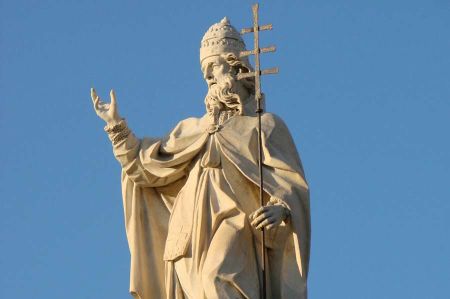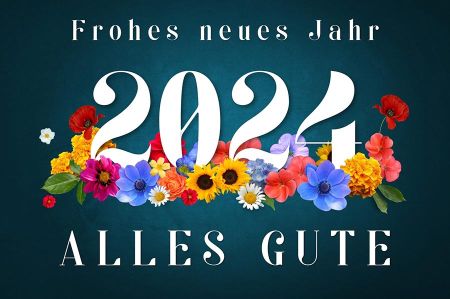New Year's Eve - the next turn of the year is coming!
- Written by Portal Editor
And another year has almost passed, a new year has begun. Many events, both positive and negative, happened in the past year, so there were many annual reviews of past events in the media,
which should motivate everyone to at least draw a short summary of their own in order to learn lessons for the future. perhaps to change, adapt and react to things in your own life. It is not for nothing that the wishes "Happy New Year" are made or that one wishes oneself with the help of various, for the sake of simplicity we call them "oracles" such as the lead casting, that one's own wishes will come true.
But why on this day, at this New Year's event? What makes this date so important? Of course, a New Year's Eve celebration is something great, plus the banging of the firecrackers and the rockets in the night sky. Where does all this come from?
Celebrations at the end of the year were already celebrated by the Romans - the first calendars?

The origin of numerous calendar forms has not yet been clarified with certainty, but the shape, style and length of the intercalary months clearly show Etruscan-Latin characteristics, although the Etruscan influence was still dominant in the early period. The oldest evidence of a calendar, the Fasti Antiates maiores, which is documented just dates back to 173 BC.. For the Romans, the new year began on March 1st until the beginning of the year was postponed to January 1st in 153 BC. Why this shift was made is still academically controversial discussed, but it is said that January 1st was always the day the consul took office. The years were accordingly named after the terms of office of these consuls. This meant that the counting months (September, equivalent to the seventh month; October, the eighth; November, the ninth; December, the tenth) also lost their corresponding positions.
New Year's Eve just a name day?

However, New Year's Eve is now also celebrated in church in many places as the end of the year, because as J. Smend so aptly said: "It is irrevocable that the beginning and end of the civil year also make a greater impression on the church community than those of the church year." The church year does not end on New Year's Eve, but before Vespers on the eve of the 1st Sunday in Advent, and the Christmas festival circle only ends on Epiphany (January 6th, "Apparition of the Lord" in the Protestant Church) or on the feast of Jesus' baptism the following day Sunday (in the Catholic Church).
All of this was rather minor for the ancient Germanic peoples, but they also had their fire festivals at the end of the year. Which date was the “correct” one according to the calendar is rather irrelevant. In many regions of Germany, people still don't speak of New Year's Eve, but rather simply "Old Year's Eve" as a counterpart to the following New Year's Day.
How common is New Year's Eve in Europe?
Whether with or without New Year's Eve celebrations or Old Year's Day, a happy and happy New Year to all of you.
Please read as well:
